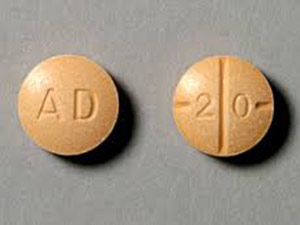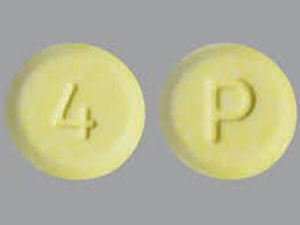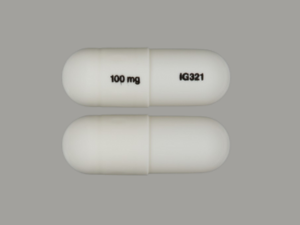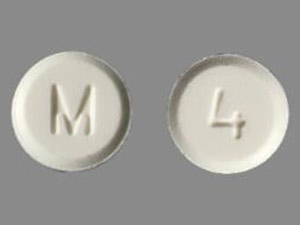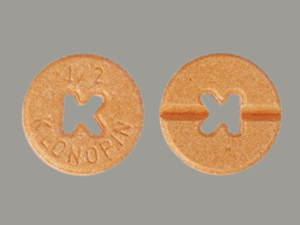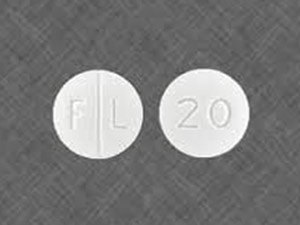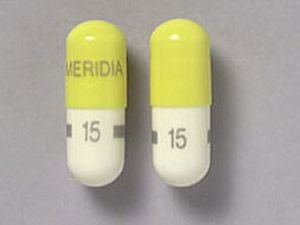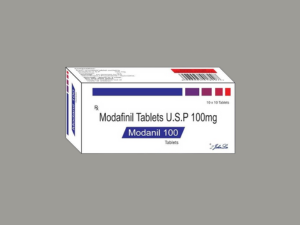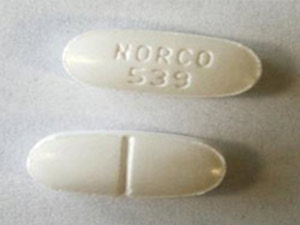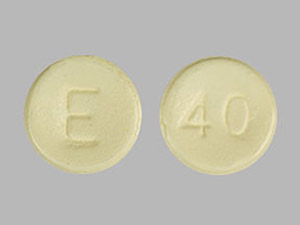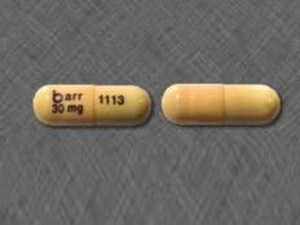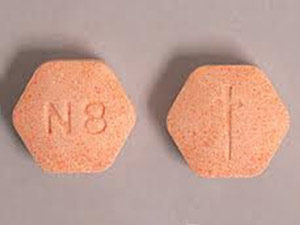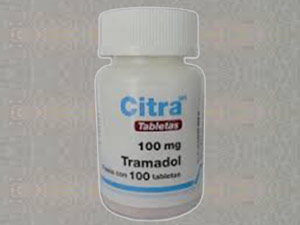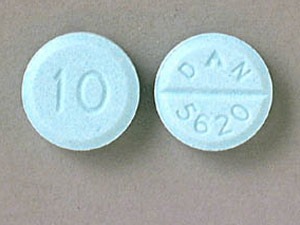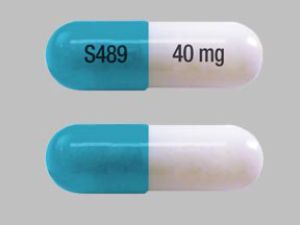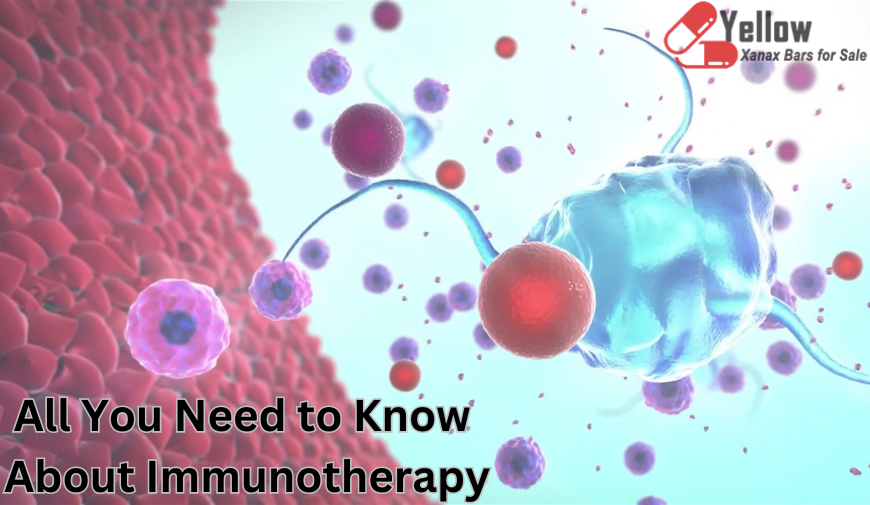
All You Need to Know About Immunotherapy
In the different lines of this blog, you will briefly learn about cancer immunotherapy. By understanding the types of immunotherapies, you can choose the suitable form. Your doctor will examine your cancer and recommend an appropriate type of Immunotherapy.
For example, they can advise you of pancreatic cancer immunotherapy for your pancreatic cancer. Same as if you have liver cancer, you may choose Immunotherapy for liver cancer. According to your clinical history or overall health, they may also suggest chemotherapy. To dive into the depth of sublingual immunotherapy, keep reading this blog.
What is Cancer immunotherapy?
Cancer immunotherapy is a treatment that uses the immune system’s power to combat the disease. It enhances or stimulates the body’s natural defenses to identify and attack cancer cells. The body’s immune system helps recognize and eliminate aberrant cells, including cancer cells.
However, cancer cells may occasionally evade detection by the immune system by secreting proteins that inhibit immune activity or by presenting themselves as normal cells. Utilizing a variety of methods, Immunotherapy enables the immune system to identify and target cancer cells.
It might involve the usage of immune checkpoint inhibitors, which generally block proteins that suppress immune activity, or using cell-based therapies, including CAR-T cell therapy. It consists in modifying your T cells to recognize better and combat cancer cells.
Immunotherapy has demonstrated promising outcomes in the treatment of several types of cancer. It includes lymphoma, lung cancer, and melanoma. However, it is unsuitable for all patients, and possible adverse reactions might be associated with treatment. It is frequently combined with other treatments, such as radiation therapy or chemotherapy, to get the best possible patient results.
Types of immunotherapies
There are various types of immunotherapies, including:
- Monoclonal antibodies and immune checkpoints inhibitors
- Non-specific immunotherapies
- T-cell therapy
- Oncolytic virus therapy
- Cancer vaccines
- Keytruda immunotherapy
The kind of Immunotherapy, treatment schedule, and dose depend on various factors. These may include the type of cancer, location, size, and where it has spread. Your body weight, age, general health, and possible adverse reactions are also essential. Consult your healthcare expert about why a particular immunotherapy plan is recommended.
Monoclonal antibodies & immune checkpoint inhibitors
These are molecules created in a lab that can specifically target proteins on the surface of immune or cancer cells. They can either trigger or inhibit immune system responses. Monoclonal antibodies may help fight cancer in various ways.
For instance, they might block abnormal protein activity in cancer cells. It is also regarded as a sort of targeted therapy, which is a method of treating cancer with drugs that specifically target the proteins, genes, or tissue environment that supports the survival and growth of the tumor.
Other monoclonal antibodies function by blocking or preventing immunological checkpoints from strengthening your immune system.
The body uses Immune checkpoints to automatically stop immune responses and prevent the immune system from attacking normal (healthy) cells. Cancer cells may find ways to hide from the immune system by turning on these checkpoints.
With checkpoint inhibitors, cancer cells cannot suppress the immune system. These inhibitors frequently disrupt the CTLA-4 pathways and PD-1/PD-L1 pathways as checkpoints. A few examples of immune checkpoint inhibitors are:
- Bavencio (nivolumab)
- Opdivo (Nivolumab)
- Keytruda (Pembrolizumab)
- Imfinzi (durvalumab)
- Yervoy (Ipilimumab)
- Jemperli (Dostarlizumab)
Non-specific immunotherapies
Non-specific immunotherapies are also known as non-specific immunomodulating agents. It assists your immune system in destroying cancer cells. Different forms of non-specific immunotherapies function in various ways.
Types of non-specific immunotherapies
Cytokines are a component of the immune system. They are proteins that communicate with one another to stimulate the immune system. BCG (Bacillus Calmette-Guerin) BCG is the same as bacteria that cause tuberculosis. It helps treat bladder cancer.
Through a catheter, BCG is inserted directly into the bladder. It adheres to the bladder’s interior lining and triggers the immune system to destroy tumor cells. BCG might cause flu-like symptoms.
T-cell therapies T-cells are immune cells that help to fight infection. In this therapy, doctors remove these cells from our blood. Then they add particular proteins known as receptors to the cells. The receptors make it possible for those T cells to identify cancer cells. The changes T cells are reintroduced to the body.
Cancer Vaccines These are vaccinations that can activate the immune system to attack cancer cells. They might be produced using cancer cells or specific proteins present in cancer cells. There are two types of cancer vaccines:
- Treatment vaccines
- Prevention vaccines
If you want to get immunotherapy treatment, you must consult an experienced healthcare expert.
When is Immunotherapy used to treat cancer?
Immunotherapy is frequently used in cases where other alternative treatments, such as radiation therapy and chemotherapy, have not been effective or unsuccessful. It might also be used with other medicines to boost their efficacy.
Your doctor will decide if Immunotherapy is suitable for your particular type of cancer. Factors may include the location and stage of cancer, clinical history, a person’s overall health, potential risks, and advantages of the treatment.
What are the possible side effects of Immunotherapy?
Few adverse reactions are standard with all kinds of Immunotherapy. For example, you may have skin reactions at the needle site, such as:
- Rash, redness
- Pain, swelling
- Itchiness, soreness
You might experience flu-like symptoms, such as:
- Weakness, chills, fever
- Joint or muscle aches
- Headache, trouble breathing
Other side effects may include:
- Heart palpitations, diarrhoea
- Organ inflammation
- Sinus congestion
These are the possible side effects of cancer immunotherapy.
How is Immunotherapy given?
Immunotherapy can be administered in various methods, including Subcutaneously Few immunotherapy drugs can be injected directly beneath the skin or subcutaneously. It is also a common way to give Immunotherapy, and it might be more convenient for patients who require it to obtain treatment at home. Intravenously Immunotherapy medicines might be given intravenously, which means they are vaccinated directly into a vein in the arm.
It is a common way to give Immunotherapy. It also permits the drugs to be easily and quickly delivered throughout the body. Topically Immunotherapy might be applied directly onto the skin in a few cases. It is frequently used to treat skin cancer and might efficiently target cancer cells while minimizing adverse reactions.
Few immunotherapy medicines might be used orally, in capsules or tablets. It is commonly done at home and might suit a few patients. It’s essential to note that everyone with PCS will experience all of these symptoms, and the intensity and duration of symptoms might vary.
Does Immunotherapy work for cancer?
Yes, Immunotherapy might be a successful treatment option for a few types of cancer. Immunotherapy is a cancer treatment that assists the body’s immune system in the battle against cancer by enhancing or stimulating the immune response.
Immunotherapy has generally been effective in treating specific types of cancer, such as bladder cancer, melanoma, and lung cancer. Its efficacy might differ from person to person and may not be helpful for all cancer types.
Immunotherapy vs. chemotherapy
They both are cancer treatments, but they act in various ways. Chemotherapy Chemotherapy is a treatment that uses medicines to kill cancer cells throughout the body. Chemotherapy medicines work by targeting rapidly dividing cells, including cancer cells. However, they can also target other rapidly dividing cells in our bodies.
It includes hair follicles and cells lining the digestive tract, which might lead to adverse reactions like nausea, hair loss, and diarrhea. Immunotherapy encourages the body’s immune system to fight cancer.
It might be done in various ways, such as: Using antibodies to inhibit the signals cancer cells use to ignore detection by the immune system By genetically altering immune cells to target cancer cells more effectively. Immunotherapy and chemotherapy have their drawbacks and benefits. It depends on the stage of cancer, overall health conditions, etc.
Conclusion
Hope! You have learned many essential details about cancer immunotherapy. If you have cancer, you must consult your doctor regarding Immunotherapy. As mentioned above, Immunotherapy is available as a hope for those who weren’t cured by other treatments.
By understanding the types of immunotherapies, you can choose the suitable form. Your doctor will examine your cancer and recommend an appropriate type of Immunotherapy.
For example, they can advise you of pancreatic cancer immunotherapy for your pancreatic cancer. Same as if you have liver cancer, you may choose Immunotherapy for liver cancer. According to your clinical history or overall health, they may also suggest chemotherapy. To dive into the depth of Immunotherapy, keep reading this blog.
What is Cancer immunotherapy?
Cancer immunotherapy is a treatment that uses the immune system’s power to combat the disease. It enhances or stimulates the body’s natural defenses to identify and attack cancer cells. The body’s immune system helps recognize and eliminate aberrant cells, including cancer cells.
However, cancer cells may occasionally evade detection by the immune system by secreting proteins that inhibit immune activity or by presenting themselves as normal cells. Utilizing a variety of methods, Immunotherapy enables the immune system to identify and target cancer cells.
It might involve the usage of immune checkpoint inhibitors, which generally block proteins that suppress immune activity, or using cell-based therapies, including CAR-T cell therapy. It consists in modifying your T cells to recognize better and combat cancer cells.
Immunotherapy has demonstrated promising outcomes in the treatment of several types of cancer. It includes lymphoma, lung cancer, and melanoma. However, it is unsuitable for all patients, and possible adverse reactions might be associated with treatment. It is frequently combined with other treatments, such as radiation therapy or chemotherapy, to get the best possible patient results.
Types of immunotherapies
There are various types of immunotherapies, including:
- Monoclonal antibodies & Immune checkpoint inhibitors
- Non-specific immunotherapies
- T-cell therapy
- Oncolytic virus therapy
- Cancer vaccines
The kind of Immunotherapy, treatment schedule, and dose depend on various factors. These may include the type of cancer, location, size, and where it has spread. Your body weight, age, general health, and possible adverse reactions are also essential. Consult your healthcare expert about why a particular immunotherapy plan is recommended.
Monoclonal antibodies & immune checkpoint inhibitors
These are molecules created in a lab that can specifically target proteins on the surface of immune or cancer cells. They can either trigger or inhibit immune system responses. Monoclonal antibodies may help fight cancer in various ways.
For instance, they might block abnormal protein activity in cancer cells. It is also regarded as a sort of targeted therapy, which is a method of treating cancer with drugs that specifically target the proteins, genes, or tissue environment that supports the survival and growth of the tumor.
Other monoclonal antibodies function by blocking or preventing immunological checkpoints from strengthening your immune system.
The body uses Immune checkpoints to automatically stop immune responses and prevent the immune system from attacking normal (healthy) cells. Cancer cells may find ways to hide from the immune system by turning on these checkpoints.
With checkpoint inhibitors, cancer cells cannot suppress the immune system. These inhibitors frequently disrupt the CTLA-4 pathways and PD-1/PD-L1 pathways as checkpoints. A few examples of immune checkpoint inhibitors are:
- Bavencio (nivolumab)
- Opdivo (Nivolumab)
- Keytruda (Pembrolizumab)
- Imfinzi (durvalumab)
- Yervoy (Ipilimumab)
- Jemperli (Dostarlizumab)
Non-specific immunotherapies
Non-specific immunotherapies are also known as non-specific immunomodulating agents. It assists your immune system in destroying cancer cells. Different forms of non-specific immunotherapies function in various ways.
Types of non-specific immunotherapies
Cytokines are a component of the immune system. They are proteins that communicate with one another to stimulate the immune system. BCG (Bacillus Calmette-Guerin) BCG is the same as bacteria that cause tuberculosis. It helps treat bladder cancer.
Through a catheter, BCG is inserted directly into the bladder. It adheres to the bladder’s interior lining and triggers the immune system to destroy tumor cells. BCG might cause flu-like symptoms.
T-cell therapies T-cells are immune cells that help to fight infection. In this therapy, doctors remove these cells from our blood. Then they add particular proteins known as receptors to the cells. The receptors make it possible for those T cells to identify cancer cells. The changes T cells are reintroduced to the body.
Cancer Vaccines These are vaccinations that can activate the immune system to attack cancer cells. They might be produced using cancer cells or specific proteins present in cancer cells. There are two types of cancer vaccines:
- Treatment vaccines
- Prevention vaccines
If you want to get immunotherapy treatment, you must consult an experienced healthcare expert.
How is Immunotherapy used to treat cancer?
Immunotherapy is frequently used in cases where other alternative treatments, such as radiation therapy and chemotherapy, have not been effective or unsuccessful. It might also be used with other medicines to boost their efficacy.
Your doctor will decide if Immunotherapy suits your particular type of cancer. Factors may include the location and stage of cancer, clinical history, a person’s overall health, potential risks, and advantages of the treatment.
What are the possible side effects of Immunotherapy?
Few adverse reactions are standard with all kinds of Immunotherapy. For example, you may have skin reactions at the needle site, such as:
- Rash, redness
- Pain, swelling
- Itchiness, soreness
You might experience flu-like symptoms, such as:
- Weakness, chills, fever
- Joint or muscle aches
- Headache, trouble breathing
Other side effects may include:
- Heart palpitations, diarrhoea
- Organ inflammation
- Sinus congestion
These are the possible side effects of cancer immunotherapy.
How is Immunotherapy given?
Immunotherapy can be administered in various methods, including Subcutaneously Few immunotherapy drugs can be injected directly beneath the skin or subcutaneously. It is also a common way to give Immunotherapy, and it might be more convenient for patients who require it to obtain treatment at home. Intravenously Immunotherapy medicines might be given intravenously, which means they are vaccinated directly into a vein in the arm.
It is a common way to give Immunotherapy. It also permits the drugs to be easily and quickly delivered throughout the body. Topically Immunotherapy might be applied directly onto the skin in a few cases. It is frequently used to treat skin cancer and might efficiently target cancer cells while minimizing adverse reactions.
Few immunotherapy medicines might be used orally, in capsules or tablets. It is commonly done at home and might suit a few patients. It’s essential to note that everyone with PCS will experience all of these symptoms, and the intensity and duration of symptoms might vary.
Does Immunotherapy work for cancer?
Yes, Immunotherapy might be a successful treatment option for a few types of cancer. Immunotherapy is a cancer treatment that assists the body’s immune system in the battle against cancer by enhancing or stimulating the immune response.
Immunotherapy has generally been effective in treating specific types of cancer, such as bladder cancer, melanoma, and lung cancer. Its efficacy might differ from person to person and may not be helpful for all cancer types.
Immunotherapy vs. chemotherapy
They both are cancer treatments, but they act in various ways. Chemotherapy Chemotherapy is a treatment that uses medicines to kill cancer cells throughout the body. Chemotherapy medicines work by targeting rapidly dividing cells, including cancer cells. However, they can also target other rapidly dividing cells in our bodies.
It includes hair follicles and cells lining the digestive tract, which might lead to adverse reactions like nausea, hair loss, and diarrhea. Immunotherapy encourages the body’s immune system to fight cancer.
It might be done in various ways, such as: Using antibodies to inhibit the signals cancer cells use to ignore detection by the immune system By genetically altering immune cells to target cancer cells more effectively. Immunotherapy and chemotherapy have their drawbacks and benefits. It depends on the stage of cancer, overall health conditions, etc.
Conclusion
Hope! You have learned many essential details about cancer immunotherapy. If you have cancer, you must consult your doctor regarding Immunotherapy. As mentioned above, Immunotherapy is available as a hope for those who weren’t cured by other treatments.

